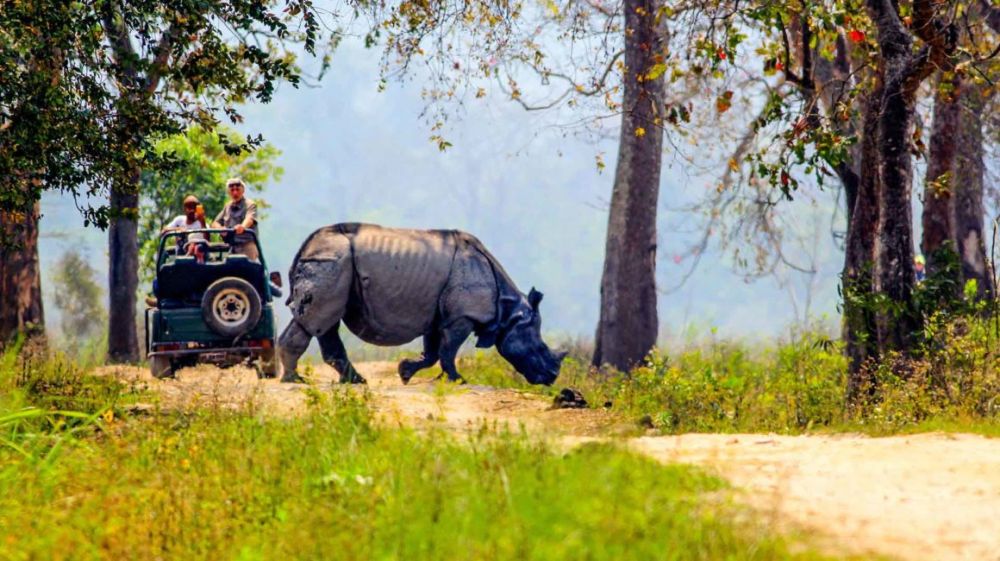

Kaziranga National Park, a World Heritage site, is one of India's precious wildlife havens. Nestled in the verdant lands of Assam, it is renowned for hosting two-thirds of the world's great one-horned rhinoceroses. Established in the early 20th century, Kaziranga has a rich history of conservation and tourism, transforming from a reserved forest in 1908 to a national park in 1974.
The history of tourism in Kaziranga traces back to 1916 when the area was formally opened to visitors. Over the decades, as the park gained prominence for its successful conservation practices, it attracted tourists from across the globe. The rich biodiversity, coupled with the park's commitment to protecting species like the Bengal tiger, Asian elephants, and water buffalo, has cemented Kaziranga's reputation as a premier destination for wildlife enthusiasts and nature lovers alike.
Jeep safaris became a popular way to explore Kaziranga's expansive areas in the latter half of the 20th century. Offering a thrilling and accessible means to traverse the park's landscapes, jeep safaris provide visitors with up-close views of wildlife in their natural habitat. These tours are typically led by experienced guides who not only have deep knowledge of the park's ecosystems but also offer insights into the lives and behaviors of its inhabitants.
In recent years, Kaziranga has seen a shift towards sustainable tourism practices, with conservation-friendly initiatives and educational programs on the rise. Luxury eco-lodges and community-run homestays have also become popular, offering visitors immersive experiences while contributing to local economies.
Environmentally conscious conduct during jeep safaris is heavily advocated. Tour operators and guides are trained to minimize disturbance to wildlife and stick to designated trails. Additionally, many safaris now offer silent, battery-operated jeeps, reducing both noise and air pollution.
The use of advanced booking systems and digital permits has streamlined the safari process, making it more efficient for travelers. Social media and interactive apps also play a vital role in promoting Kaziranga, offering virtual tours and real-time wildlife updates.
With its awe-inspiring landscapes and remarkable conservation success stories, Kaziranga National Park remains an enduring symbol of India's wildlife heritage. Jeep safari tours here not only bolster the region's tourism industry but also promote a critical message of environmental stewardship, securing the future of this biodiverse haven for generations to come.